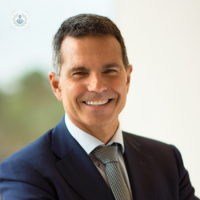New techniques in cardiac surgery: less invasive and more effective
Written by:There is a perception that cardiac surgery is very complex and has a high risk for the patient.
Currently, cardiac surgery can be performed with excellent results and with a very low risk. The risk is individual for each patient, and is determined by the advanced age, the cardiac problem that we must solve, the contractile function of his heart and the pathologies or accompanying diseases that he presents (diabetes, renal insufficiency, respiratory problems, previous embolisms etc ... ). In addition, our "Smart Cardiac Surgery Program" includes minimally invasive surgery, valvular repair surgery without using artificial prostheses, awakening in the same operating room after surgery, postoperative pain control, rapid recovery protocols ("fast" -track recovery ") and minimize the use of blood transfusions.

What exactly is minimally invasive cardiac surgery?
It basically consists of being able to perform the operation through much smaller incisions. We can perform aortic valve surgery for a wound of only 8 cm. The advantages go beyond the cosmetic reasons, because with these techniques we reduce the surgical aggression, the bleeding and the infection. In addition, the patient recovers faster and can restore his normal life much sooner.
Why is it beneficial to perform valvular repair surgery instead of implanting artificial prostheses?
Although modern valvular prostheses are very efficient and allow us to solve the problem of many patients, whenever possible, it is very important to try to perform conservative or reparative valvular surgery.. The advantages are multiple: first, we better preserve the architecture and structure of the heart and favor its contractile function ; second, we avoid that the patient must take anticoagulant medication such as Simtrom; and thirdly, we improve the results and reduce the operative complications and postoperative.
Is it really important not to transfuse blood to patients operated on for cardiac surgery?
In the case of cardiac surgery, there is great scientific evidence that allows us to ensure that the patient who does not require transfusions has better results: lower mortality, fewer complications and a faster recovery .


